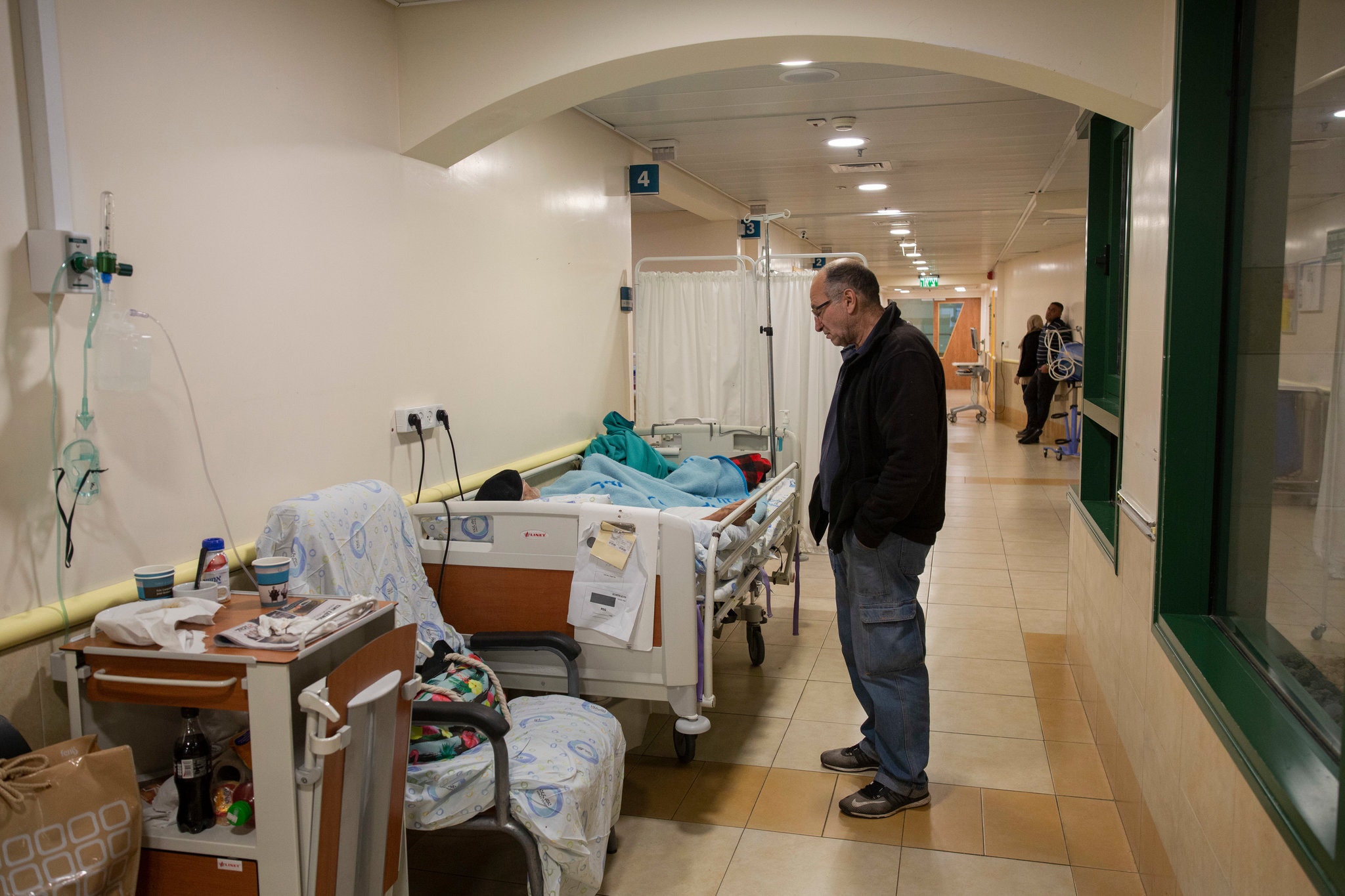Response to: “Start-up Nation,’ Groans Under Strains of Growth and Neglect”- NYT, MARCH 1, 2020
https://www.nytimes.com/2020/03/01/world/middleeast/israel-election-issues.html
David Bedein
Director
Israel Resource News Agency at The Center for Near East Policy Research
As a native of Philadelphia, living in Israel for 50 years, working as a community organizer and as an investigative reporter , I can affirm the facts reported in the New York Times article on March 1, 2020, “Start-up Nation,’ Groans Under Strains of Growth and Neglect”
https://www.nytimes.com/2020/03/01/world/middleeast/israel-election-issues.html
What was missing? Context. Israel has tripled in population over these 50 years, welcoming two million Jews, which places a burden on what the New York Times describes as Israel’s “challenges in health, education and transit…”
Indeed, the Times correctly reports that Israel’s hospitals are “overcrowded and understaffed”, with “patients often kept in the hallways…” – without reporting the current overhaul of Israel’s health system, as Israel launches new efforts to recruit more doctors, nurses and administrators.
It is vital to mention that life expectancy in Israel has increased from 74.4 to 82.1 in only 30 years
This places increased pressure on the health system to treat many more patients than ever expected .
Concerning the report of private vehicles congesting the roads in Israel, the New York Times could have interviewed more travelers fully dependent on Israel’s improved public transportation system,
Why not mention the new 28 minute train ride from Jerusalem to Tel Aviv? Before 1978, it took 90 minutes to get from Jerusalem to Tel Aviv. Not long ago, a bus ride from Jerusalem to Haifa took 3 and a half hours.Now, a Jerusalem to Haifa bus takes 90 minutes.
Full disclosure: I hold a valid Pennsylvania driver’s license for all these years, and have never driven for one minute in Israel, and am pleased to be dependent on public transport.
Concerning comments in the article about higher education, Israel’s student population has increased from 70,000 in 1988 to more than 300,000 at this time. While Israel hosted only 8 institutions of higher learning 50 years ago, there are now 75 Universities and colleges in Israel. That is a sign of a “start up nation”
Response to: “Start-up Nation,’ Groans Under Strains of Growth and Neglect”- NYT, MARCH 1, 2020
https://www.nytimes.com/2020/03/01/world/middleeast/israel-election-issues.html
David Bedein
Director
Israel Resource News Agency at The Center for Near East Policy Research
As a native of Philadelphian , living in Israel for 50 years, working as a community organizer and as an investigative reporter , I can affirm the facts reported in the New York Times article on March 1, 2020, “Start-up Nation,’ Groans Under Strains of Growth and Neglect”
https://www.nytimes.com/2020/03/01/world/middleeast/israel-election-issues.html
What was missing? Context. Israel has tripled in population over these 50 years, welcoming two million Jews, which places a burden on what the New York Times describes as Israel’s “challenges in health, education and transit…”
Indeed, the Times correctly reports that Israel’s hospitals are “overcrowded and understaffed”, with “patients often kept in the hallways…” – without reporting the current overhaul of Israel’s health system, as Israel launches new efforts to recruit more doctors, nurses and administrators.
It is vital to mention that life expectancy in Israel has increased from 74.4 to 82.1 in only 30 years
This places increased pressure on the health system to treat many more patients than ever expected .
Concerning the report of private vehicles congesting the roads in Israel, the New York Times could have interviewed more travelers fully dependent on Israel’s improved public transportation system,
Why not mention the new 28 minute train ride from Jerusalem to Tel Aviv? Before 1978, it took 90 minutes to get from Jerusalem to Tel Aviv. Not long ago, a bus ride from Jerusalem to Haifa took 3 and a half hours.Now, a Jerusalem to Haifa bus takes 90 minutes.
Full disclosure: I hold a valid Pennsylvania driver’s license for all these years, and have never driven for one minute in Israel, and am pleased to be dependent on public transport.
Concerning comments in the article about higher education, Israel’s student population has increased from 70,000 in 1988 to more than 300,000 at this time. While Israel hosted only 8 institutions of higher learning 50 years ago, there are now 75 Universities and colleges in Israel. That is a sign of a “start up nation”









